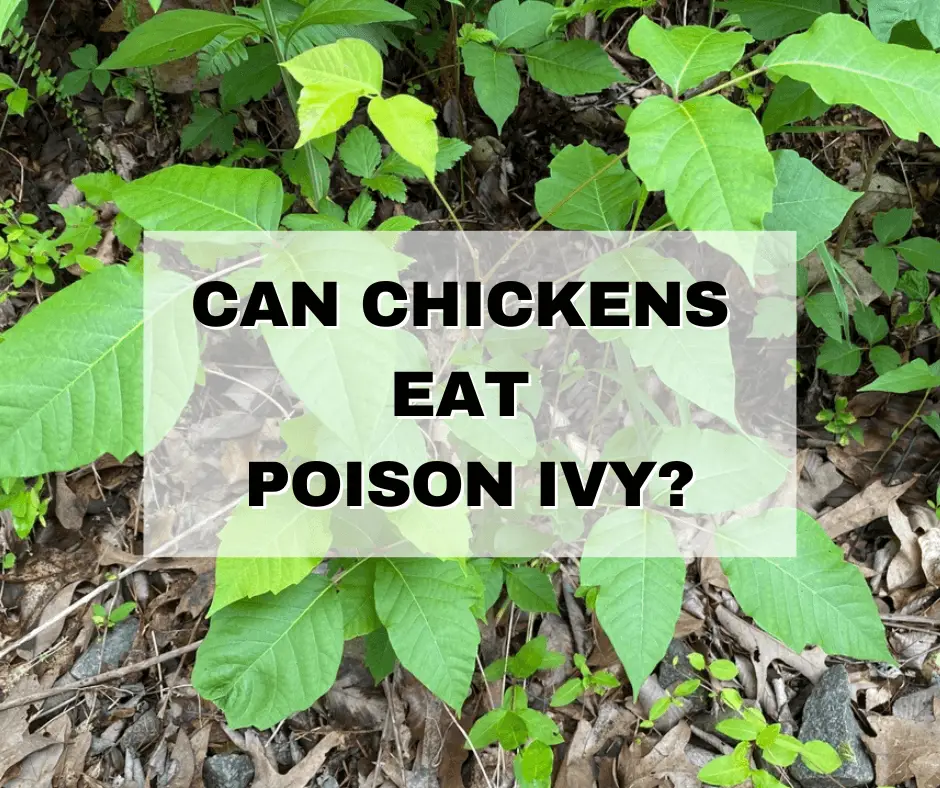Poison ivy is a plant that causes severe allergic reactions in people who come into contact with it. It causes rashes, blisters, and sometimes even hospitalization.
But despite its name, poison ivy does not make chickens ill.
Chickens love eating poison ivy! They’ll happily gobble up the leaves and stems without any ill effects. That’s because chickens are omnivores, which means they eat both plants and animal foods. If you have poison ivy growing around your coop, chickens might eat or ignore it! They’re not allergic to poison ivy, and they don’t have the same sensitivity to it that humans do.
Chickens are great for controlling poison ivy because they’ll eat all of the new growth and prevent it from spreading.
Let’s discuss this plant and its components.
What is Poison Ivy?
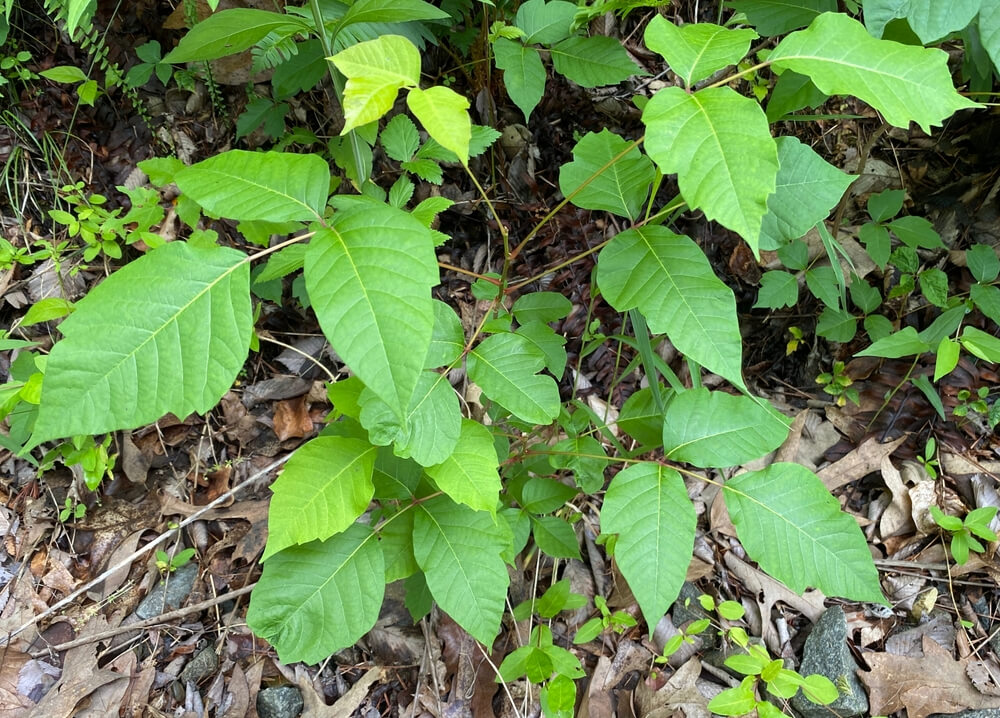
Poison ivy is a common plant that can be found in different environments, including forests, fields, and along the edges of roads throughout the United States. It is especially prevalent in areas where it gets plenty of sunlight.
It is most commonly found in the eastern half of the country, but it has also been reported as far north as Alaska and Canada. This plant belongs to the Toxicodendron genus.
In Florida, poison ivy is most prevalent in the northern part of the state and along the panhandle.
Poison ivy is a plant that produces berries and has three leaves per stem that are green on top with white or yellow lines underneath. The leaves are shaped like oak leaves with pointed tips and long stalks.
The flowers of poison ivy are small clusters of white or pinkish-white flowers that grow directly from the stems.
Poison ivy spreads by seeds, which are contained within pods that split open when ripe, revealing their brown seeds surrounded by white hairs (called urticating’s hairs).
When these hairs come into contact with human skin or eyes, they cause irritation and rash development. The leaves, stems, and roots of poison ivy contain urushiol, which can cause human skin rashes.
Urushiol is not water-soluble and will remain active on clothing or tools for some time.

What is Urushiol?
Urushiol causes an allergic reaction called contact dermatitis in most people exposed to it. The poison ivy rash usually appears within 24 hours of exposure and can last anywhere from two weeks to three months depending on how sensitive you are to urushiol.
Symptoms include redness, irritation, itching, and swelling at the point of contact with urushiol-containing plants (which may spread over time).
Is Poison Ivy bad for chickens?
Chickens don’t have the same immune systems that humans do. They can eat poison ivy without getting sick because their bodies are used to handling different types of toxins—including those found in plants.
So while humans find poison ivy highly irritating to the skin, chickens don’t have the same reaction because they lack certain proteins that trigger an allergic response in people (dogs and cats).
Unlike humans, chickens and most animals are immune to poison ivy plants.
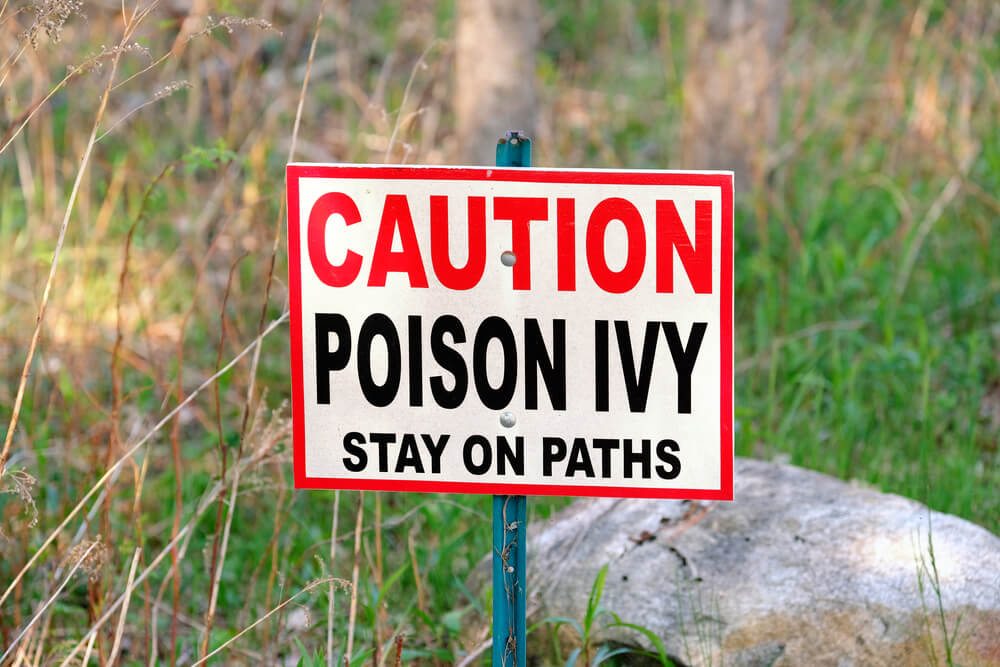
Are Poison Ivy berries harmful to chickens?
The poison ivy berries are a major food source for wild birds and the birds are the principal way that their seeds are spread around. A bird sits in a tree and poops out poison ivy seeds and a bit of starter fertilizer. It’s an ingenious thing!
If you’re worried about your chickens eating poison ivy berries, it’s important to note that they won’t get sick from eating it. They grow beneath the leaves, and chickens love swallowing them. Chickens are used to eating plants that have toxic compounds in them and have an excellent immune system that helps them digest these types of food.
Are Poison Ivy leaves safe for chickens?
Yes, chickens can eat poison ivy leaves. They are extremely nutritious and safe for chickens to eat. Birds don’t react to urushiol as we do. Goats don’t either.
Poison ivy leaves are high in protein and low in fat. They contain calcium, phosphorus, and potassium, all essential nutrients for your chicken’s health.
So, if you have free-ranging hens, don’t be afraid if they consume poison ivy leaves.
WARNING: Don’t hug or pet your chickens after they ate poison ivy.
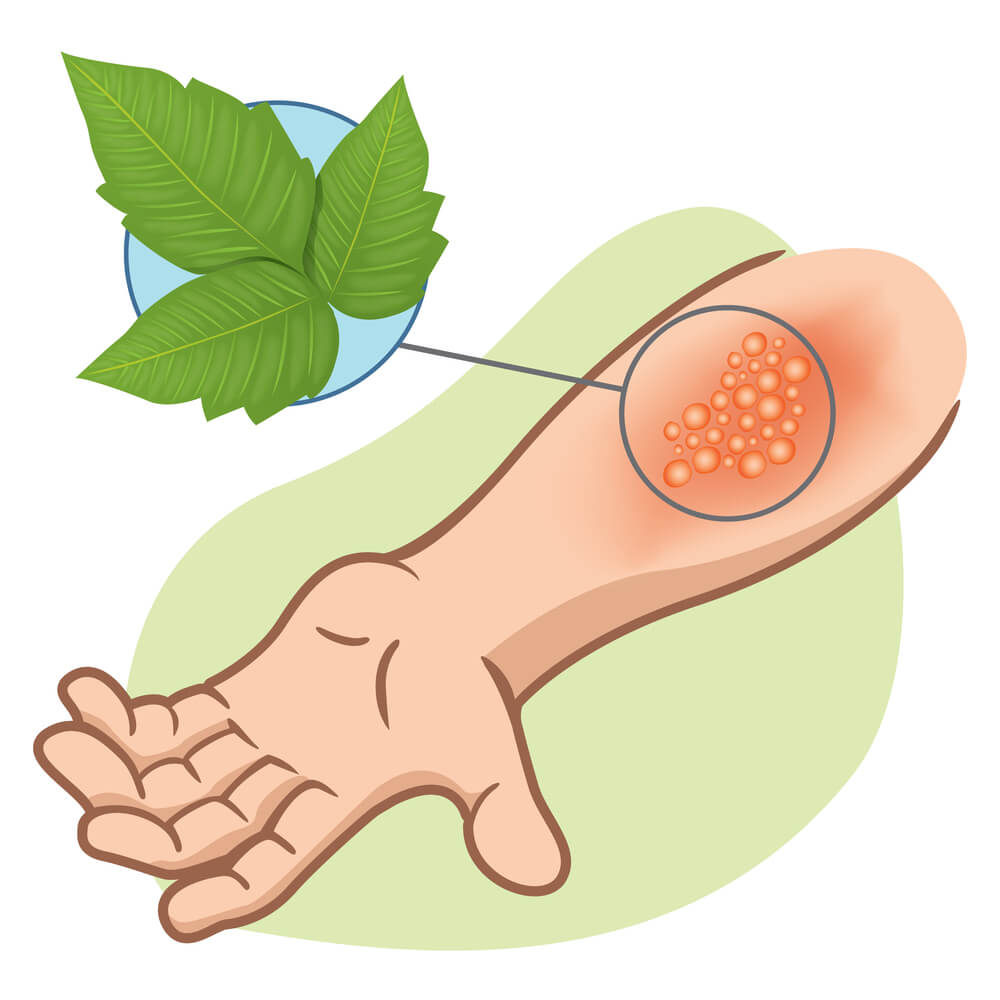
How often should I feed Poison Ivy to the chickens?
You can allow them to eat poison ivy as much as they like, but you should STAY away from them! Giving treats to chickens is always a pleasure to every chicken keeper, but this is not the case with poison ivy.
Besides poison ivy, you can give other treats to your chickens like:
Poisonous plants chickens should avoid!
Now that you know, poison ivy is safe for chickens, you’re wondering are there any plants harmful to chickens?
From our research, you should avoid having these plants in your garden or near a chicken coop:
- Lily of the valley
- Azaleas
- Morning glory
- Yew
- Jimson weed
- Amaryllis
- Trumpet vine
- Nightshade
- Nicotiana
When free-ranging, you should always keep a close eye on your chickens. They devour everything, including poisonous plants. I don’t know, but my chickens are always HUNGRY!
Conclusion
To sum up, some chicken owners leave poison ivy around their house or garden so chickens can eat. Other just want to get rid of it, because they are allergic and hate poison ivy.
It won’t hurt your chickens’ immune system, like would do to a human and it’s good for chickens diet. Nevertheless, how do you kill the poison ivy plant? If you want to get rid of poison ivy, don’t BURN IT!
Whatever you do, don’t burn it!!! A friend of ours did that and ended up in the hospital with it in his esophagus, and lungs, and his eyes were completely swollen shut. He had to have steroids to get over it.
Chickens will eat poison ivy vine. But, if a chicken eats poison ivy, humans should avoid petting or cuddling the chicken for 48 hours. The verdict? Poison ivy is not harmful to chickens, but it is harmful to humans who touch the chickens after eating poison ivy.
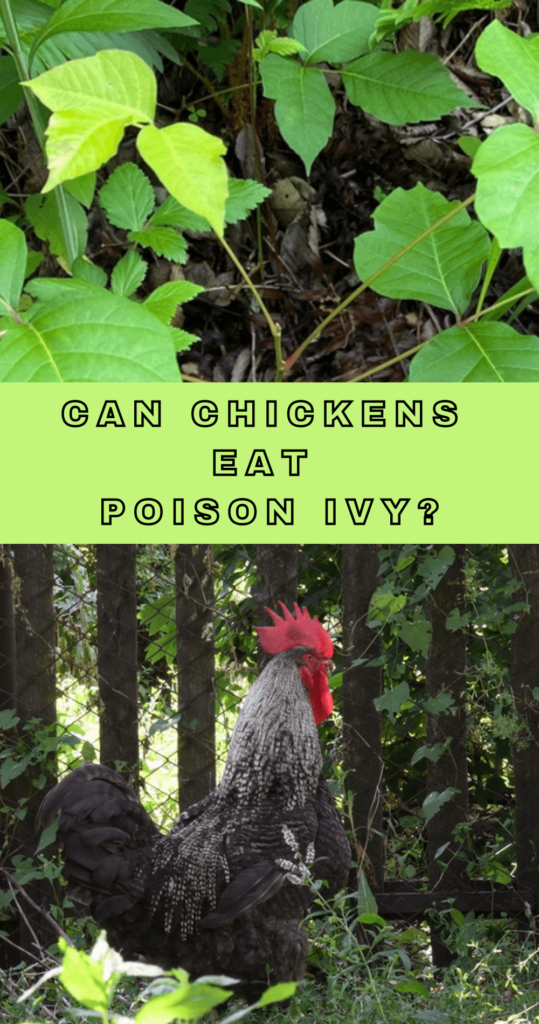
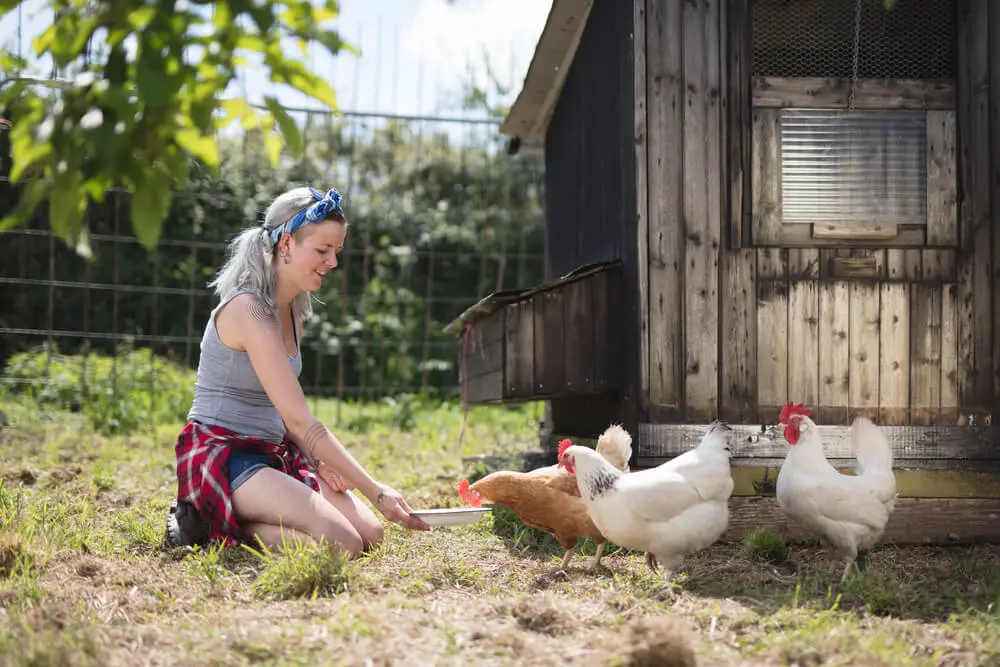
Shannon Stansberry has been engaged in the business of raising chickens for more than 12 years. In 2016, she accomplished the Agriculture & Natural Resources program at Mt. San Antonio College. At present, she tends to more than 80 chickens on her 4-hectare farm. Shannon regularly shares her insights and experience on how to raise healthy and contented chickens on the platform Typesofchickens.com
